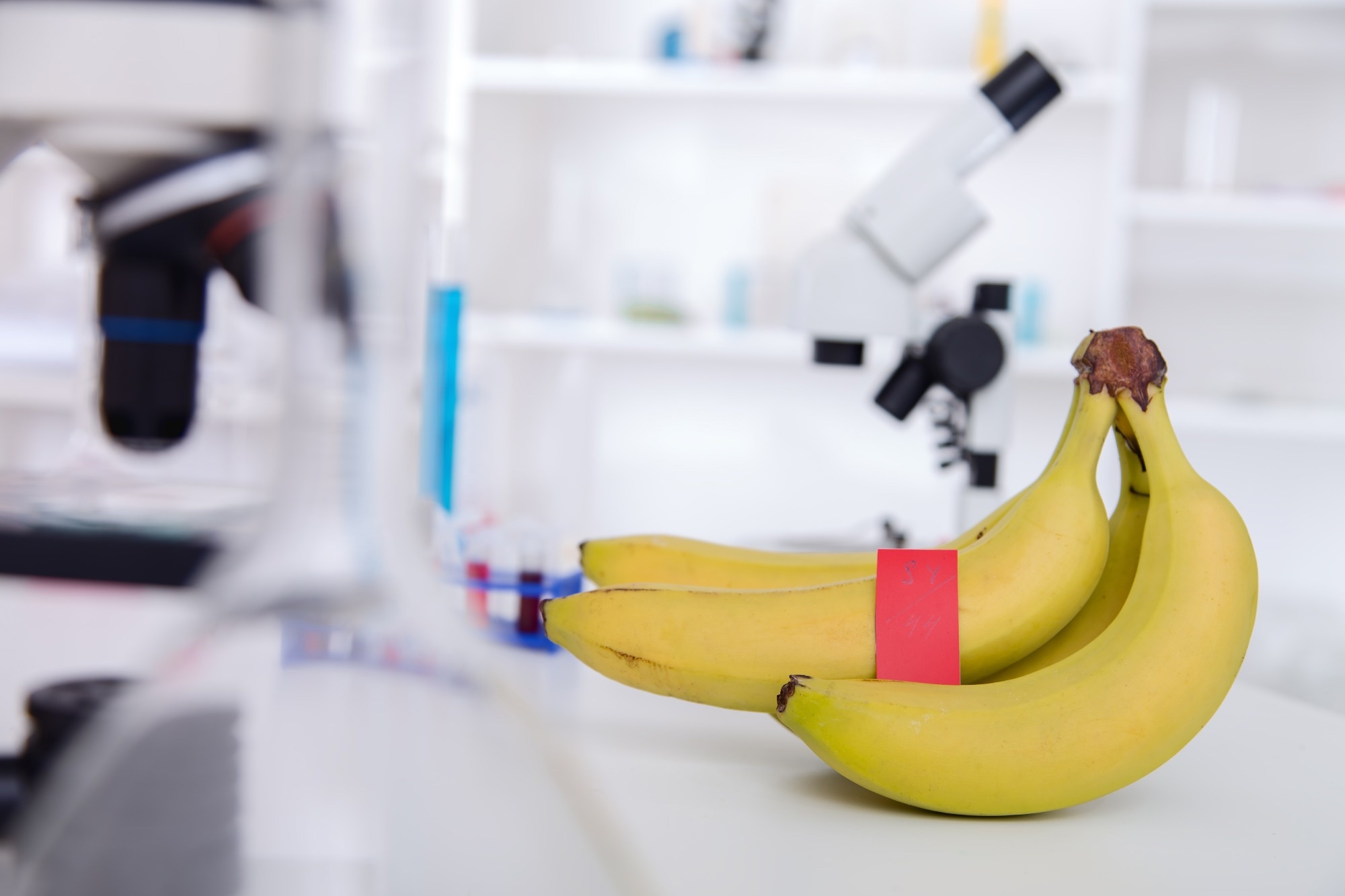Inflammatory bowel disease (IBD) patients are less likely to be vaccinated compared to that of the general population. Putting them at a greater risk of contracting vaccine-preventable illnesses.
 Study: Banana Lectin: A Novel Immunomodulatory Strategy for Mitigating Inflammatory Bowel Disease. Image Credit: Alex_Traksel/Shutterstock.com
Study: Banana Lectin: A Novel Immunomodulatory Strategy for Mitigating Inflammatory Bowel Disease. Image Credit: Alex_Traksel/Shutterstock.com
Background
IBD severely affects people’s quality of life and is becoming increasingly common globally. Conditions, including ulcerative colitis and Crohn’s disease, cause issues relating to the gastrointestinal (GI) tract.
IBD patients are less often vaccinated and could experience more health complications compared to the general population. The risk of infections is elevated, given IBD treatment potentially suppresses the immune system.
Nutrition is key to managing IBDs, as certain food items can affect the immune system, either directly or indirectly.
Bananas (Musa sp.) are common in everyday nutrition and benefit the GI tract under certain conditions. Recent research has shown that banana lectin (BanLec), an ingredient of banana, could contribute to the beneficial effects.
Both isoforms of BanLec, i.e., naturally occurring and recombinant (rBanLec), are stable in the GI tract.
The rBanLec influences the functional characteristics of macrophages and T cells and macrophages and is a T cell mitogen. It helps regulate the immune responses by modifying the cytokine profile in the colon and altering cytokine production.
About the study
The main objective of this study was to determine the possibility of using rBanLec as a treatment for IBD. Experiments were conducted using ten-week-old mouse strains from two different genetic backgrounds, namely, C57BL/6 (Th1-prone) and BALB/c (Th2-prone).
The model of colitis that was used was induced by 2,4,6-trinitrobenzene sulfonic acid (TNBS). As a continuous treatment strategy, rBanLec’s isoform effectiveness was assessed.
Study findings
It was noted that rBanLec significantly modulated local immune responses in the colon. This was achieved by lowering the severity and aiding the recovery from experimental colitis.
Through TNBS administration, experimental colitis could be induced in both groups of mice, but data are unclear on strain-specific susceptibility, depending on the application method.
This could be due to variations in the gut-associated lymphoid tissue (GALT)-related immunological profiles or gut microbiota. The differences drew much weaker inflammatory responses to the same stimuli in BALB/c, compared to C57BL/6 mice, making BALB/c mice more resistant to Th-1 mediated immunopathology.
Important beneficial effects of rBanLec were noted despite its inability to prevent experimental colitis. An inverse dose-dependent relationship was observed where the efficacy of rBanLec was higher at lower doses.
A minimal dose (i.e., 0.01 µg/dose) brought about a significant reduction in disease severity in both mouse strains. However, the overall course of the disease was positively affected by rBanLec even at higher doses.
The most effective treatment in both mice strains was 0.01 µg rBanLec daily. This dosage extrapolated to humans would be approximately 0.04 mg rBanLec/kg body weight/day.
For example, an individual weighing 70 kgs will need 2.8 mg rBanLec, found in one banana with about 120g of pulp.
The observed beneficial changes could be due to anti-inflammatory, immune responses generated following colitis onset or the lower cellular infiltration in the colon.
A lower pro-inflammatory response and higher production of the regulatory cytokine IL-10 indicated the muting of inflammation in the colon.
A reduction was noted in the ratio of [TNFα]/[IL-10] post the rBanLec treatment, which was strain-specific. In C57BL/6 mice, TNFα production was decreased, while in BALB/c mice, the IL-10 production increased.
During the recovery of C57BL/6 and BALB/c mice, varied myeloperoxidase activity suggested the presence of additional strain-specific differences in mechanisms driving recovery.
Higher differentiation of Tregs within the mesenteric lymph nodes evidences the attempts of the immune system to regulate colonic inflammation. At the disease climax, the rise in Treg proportions was consistent across all mice.
This was true irrespective of rBanLec treatment status. Only the mice treated with a lower dose of rBanLec (rBL0.1) sustained the higher Treg levels.
Conclusions
The findings suggest that foods containing either BanLec or rBanLec could be effective in IBD treatment.
rBanLec has a positive effect on the local colon environment and generates anti-inflammatory responses, but this effect is highly dose-dependent.
Further understanding the underlying mechanisms through which rBanLec manifests its therapeutic potential is crucial to developing an effective and safe treatment regimen for IBD.